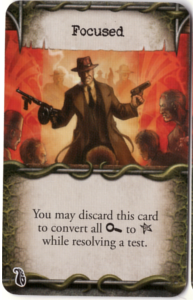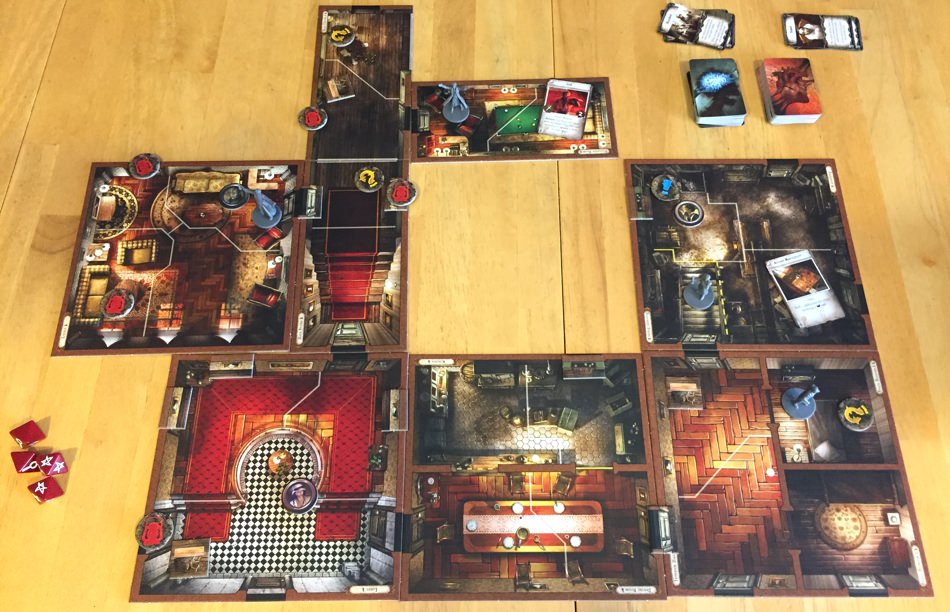
It only works on puzzles, and (especially with more common 4-ish player counts) it’s entirely likely that she’ll go the entire game without hitting a puzzle. She’s one of my favorite characters, but her investigator ability is terrible. A clear example of this is Amanda Sharpe. For example, one character should probably have a high Lore to use spells, while a character with higher Agility can carry the best firearm.įinally, be hesitant about abilities that are too situational, because (unless you know where to go from a prior play) it’s hard to ensure that the character gets to use the ability. However, while everyone needs Will, the three combat attributes can be spread out around the group. Strength is the most common combat roll, since objects like crowbars and fire extinguishers are more common than guns. Although combat doesn’t happen as much as “Will saves,” combat happens in almost every game of Mansions of Madness (sometimes a lot), and you want every character to be able to participate in it. Of the other attributes, Strength is probably the most important. You’ll see below that I have investigators who are Will 3 on my list, so it isn’t a death sentence, but that Will of 4 can help keep the game going longer, which equals more fun, especially for a newer player. If there’s any single thing I would suggest when picking an investigator, it would be to look for a Will of at least 4. And not only is it rolled more than any other attribute, it prevents a lot of trauma over the course of the game (and often some wounds as well). Working with this is the importance of Will – it will be constantly rolled by every character. And there are a lot of ‘traitor’ cards in that insanity deck. One player working against the rest almost always spells doom. Indeed, the ‘traitor’ cards are often effectively game over – Mansions of Madness scenarios are usually tough to beat even with the group working perfectly together. The consequences of going insane are frequently massive. The consequences of being wounded are real, but not the end of the world. But physical damage is also much less problematic (until you die, of course). It’s often much easier to accumulate trauma than physical damage – everyone’s rolling during most mythos phases, after all. Sanity is more important than Health, and Will is the most important attribute. Actions that do something like provide a clue or heal a wound are generally bad – they don’t do enough to further the investigation.Īnother factor to consider are which stats are most important.

Investigators with abilities that use up an action must be considered with skepticism. Investigators that effectively provide “free” actions or that improve actions that were going to be taken anyway can be very good. To win, those actions need to be used efficiently. Every scenario puts the players on a clock – a certain number of turns and, therefore, a certain number of actions, before disaster strikes. In evaluating investigators, it’s important to keep in mind that – once you get past those glorious atmospherics – Mansions of Madness is a game of action economy. Of course, if you’re attempting a specific scenario that you’ve played before, you’ll be able to get a better idea of which characters could help (and also some characters may be better if you know exactly where to go to use their talents). These scenarios have at least a good amount of combat, but either don’t involve a ton of interaction or the interaction they involve doesn’t require rolling influence all that much. This advice will be from the point of view of a ‘generic’ sort of scenario.

There are a variety of different kinds of scenario in Mansions of Madness, from ones with heavy combat and no interaction with characters, to ones with lots and lots of interaction and just one fight at the end. So I thought it would be helpful to take a look at what makes a good investigator, and what the best ones available are (when I say “good” here, I mean powerful from a gameplay perspective – this would be a very different list if it was just which characters I like). At the time of writing, there are 32 options, with another 4 soon to be arriving in Horrific Journeys. One element of that continued support is more investigators (although there were a bunch at launch, between the base game and the figure/tile collections). And Fantasy Flight keeps putting out more support for the game.

I love the atmosphere, I love the combination of gameplay and story, I love how the app works with the game – it’s a complete package. The second edition of Mansions of Madness, released in 2016, is one of my favorite board games. Note: this topic was recently covered in Episode 244 of the podcast, if you prefer an audio presentation.


 0 kommentar(er)
0 kommentar(er)
